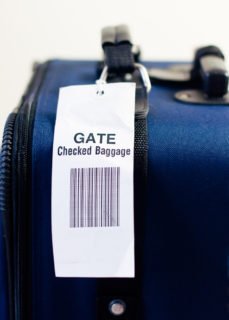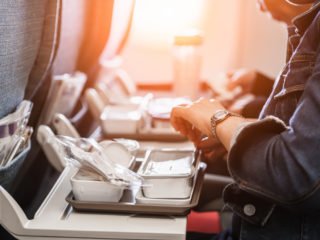You may be adopting a zero-waste lifestyle in your home, but that doesn’t mean you shouldn’t incorporate this mentality into your travel time. According to the International Air Transport Association, in 2017 airlines produced around 5.7 million tons of waste, and this number is set to double over the next fifteen years. Said waste consisted of toilet waste, lunch trays, water cups, napkins, and even food wrappers. Unfortunately, most of this waste has found its way into landfills.
While there is yet to be a perfect zero-waste solution, we can each do our part by implementing zero-waste tactics into our travel schedules. Traveling gives us the opportunity to see the beauty of our planet, so read on to discover how you can preserve its splendor.
Zero-Waste Traveling Tips
Go paperless
Aside from adding volume to landfills, paper waste can also increase the risk of deforestation.
In enjoying a zero-waste travel trip, the first step would be to go paperless. This can be done before you even go on your trip. Instead of printing out your travel tickets, simply download your tickets via email. Most airlines and other modes of transportation provide the option of e-tickets. Whilst traveling, do your best to avoid receipts, brochures, or any other piece of paper that you are likely to quickly discard.

In terms of packing, do your best to pack light so that you can travel with a carry-on. You’ll avoid checking a bag in and this will prevent stickers or tags from being placed on your checked luggage.
Bring a glass bottle
According to a study published in the journal Science Advances, since the manufacturing of plastics in the 1950s, 8,3 billion tons is the cumulative number for any plastic that has ever been manufactured. Of this number, 6,3 billion tons have already become trash, and almost 80% of that amount is currently sitting in landfills.
It’s incredibly easy to add to this number whilst on holiday, which is why it’s best to take a preemptive approach. The best way to do this is to pack an empty glass water bottle. Wherever you’ll be in the world, you will be able to rehydrate without having to purchase any plastic-packaged beverages.
Carrying around a reusable bag is also a great way to avoid using plastic bags.
Meal-time
Before you board the plane, do your best to pack snacks in reusable containers. This will prevent you from purchasing in-flight meals. These meals are often packaged in plastic and this can increase the amount of waste generated by the airlines.

When sampling local cuisine, be sure to only indulge in foods that are plastic and packaged lightly. In terms of takeaways, only buy from places that use recyclable and eco-friendly packaging. Moreover, refuse any extra plastic utensils, napkins, or straws.
Toiletries
For toiletries, opt for beauty products that come in the shape of bars. Unlike travel-sized shampoos and body washes, these beauty products are longer lasting and multi-functional. They’re also spill-proof, so you don’t have to worry about your shampoo bursting open onto your beach dress.
Also, try to avoid purchasing disposable products like menstrual pads. One sustainable alternative is menstrual cups. These products, which are usually made from silicone, don’t generate as much waste as tampons and pads as they are reusable.



![women [longevity live]](https://longevitylive.com/wp-content/uploads/2020/01/photo-of-women-walking-down-the-street-1116984-100x100.jpg)










